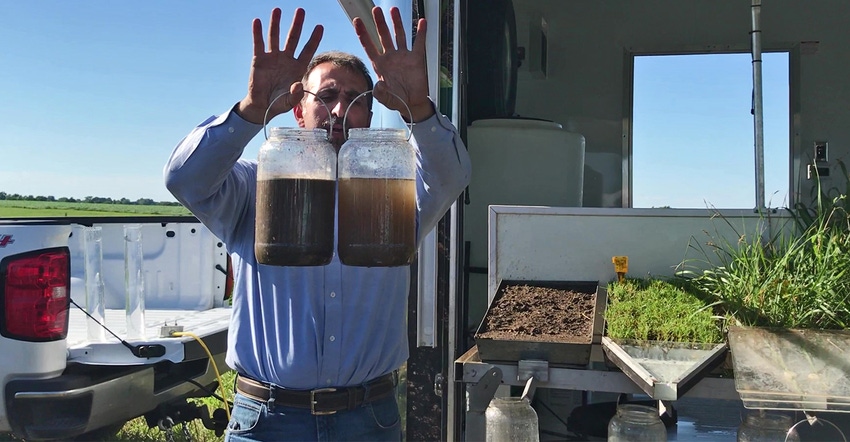
Management of cover on pastures and cropland can determine whether water runs off your fields or stays put. David Doctorian, USDA-NRCS soil health specialist, says growers may be surprised at how much water runs off a field after only 1 inch of rainfall.
“We expect to see some runoff on those tilled crop acres,” he says, “but what we don’t expect is the amount and quality of water running off those continuously grazed pastures.” While some cover is better than no cover, farmers should focus on the species and amount of cover to improve permeation.
Soil type, tillage, cover and root mass affect soil health. However, they all play a role in determining the level of water runoff, infiltration and quality.
For Doctorian, it all boils down to management practices for crop and livestock farmers that keep water out of the roads and ditches and in the field. He travels to farms sharing tips on how good cover and grazing practices can increase moisture availability.
So just how much water leaves a field after an inch of rainfall? Click on the video to find out. You will learn about management practices to keep water in place.
About the Author(s)
You May Also Like






